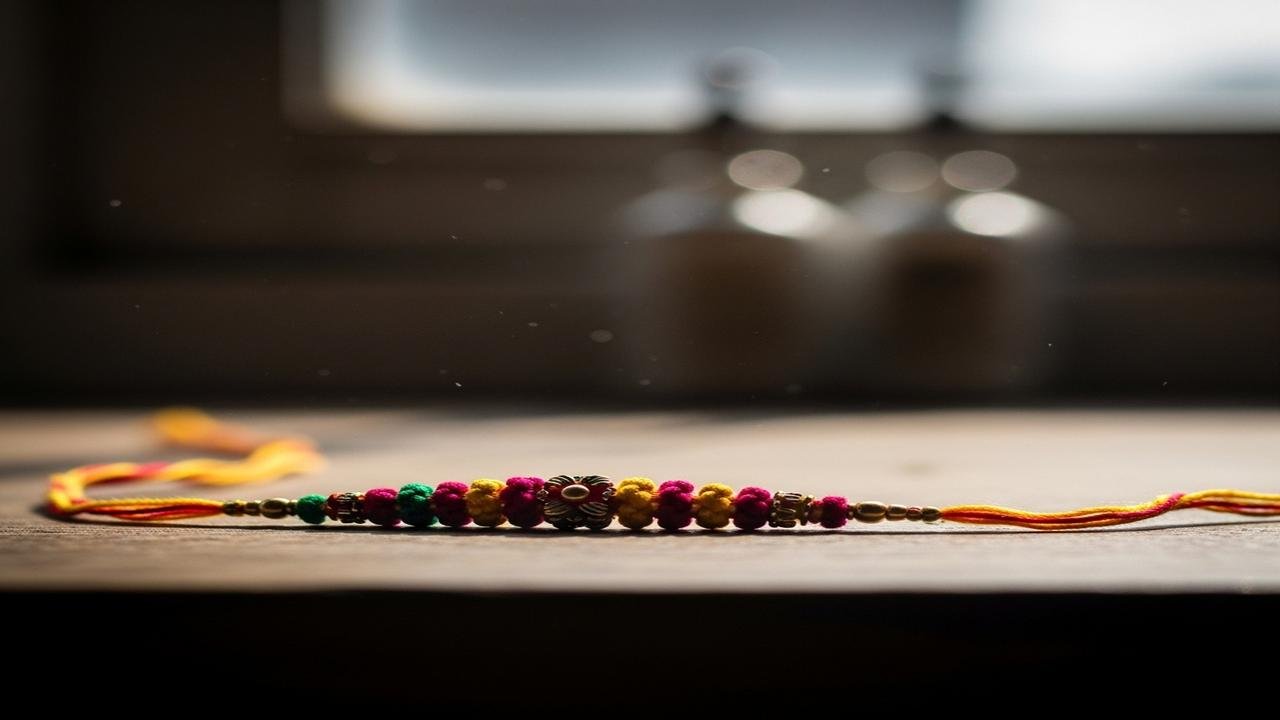This Rakhi Thread Holds a Promise You Missed

Raksha Bandhan arrives each year like a warm thread tying hearts together. As a child, I watched my grandmother roll out bright threads and smile as each knot found a wrist. She would tell stories—of gods, warriors, and sisters—each tale teaching that a single thread can hold a promise stronger than steel. That gentle memory is the deeper meaning of Raksha Bandhan.
At its surface, Raksha Bandhan is a simple ritual: a sister ties a rakhi on her brother’s wrist, applies a tilak, and prays for his well-being while he vows to protect her. But beneath these acts lies a profound web of values—duty, devotion, trust, and the sacred bond of service known as dharma. The thread itself is a living symbol: visible, fragile, yet binding hearts in responsibility.
Ancient stories help us feel this meaning. One tale tells of Indra, the king of gods, who was losing power. His wife, Sachi, tied a special thread around his wrist after a sacred ritual, and he was restored. Another beloved story is from the Mahabharata: when Draupadi tore a piece of her sari to save Krishna, he promised to protect her. These legends show that Raksha Bandhan is not only about blood ties but about promises made in moments of vulnerability.
Over time, the festival grew beyond family walls. In medieval India, sisters tied rakhis to soldiers going to battle, asking the brave men to protect their land and honor. Stories of queens and common women sending rakhis to leaders—asking for protection for their people—remind us that the festival is also about community and courage. Today, the rakhi often crosses borders: we tie it for friends, teachers, neighbors, and even strangers who stand for our safety and dignity.
The rituals are simple and beautiful, each step rich in meaning:
- Tying the rakhi: A knot of care, a visible promise.
- Tilak and aarti: Blessings and light, invoking divine protection.
- Exchange of sweets: Sweetness in relationships; joy shared.
- Gift or vow: A brother’s responsibility turned into action—support, respect, and presence.
There are quieter, less visible practices too. Many sisters fast or offer prayers for their brothers. Some families visit temples, tying rakhis to deities or to the hands of monks and soldiers. In modern times, people tie rakhis to the wrists of soldiers at border posts, to public servants, and even to trees and idols—reminding us that protection extends to life, nature, and ideals we hold dear.
Raksha Bandhan also reflects changing times. Women tie rakhis to friends of any gender; men and siblings exchange rakhis. The festival has become a celebration of chosen relationships and social responsibility. In cities, artisans create eco-friendly rakhis, blending tradition with care for the earth. In villages, a simple thread still carries the same quiet power.
At its heart, Raksha Bandhan asks us to be present for one another—not only in neat rituals, but in daily life. The vow to protect is not only about shielding from harm; it is about listening, supporting dreams, and standing up for justice. That is the spiritual core: protection as compassion, strength as service.
Conclusion: As you tie or receive a rakhi this year, pause for a moment. Feel the thread on your skin and remember the promise it holds. Let the festival remind you that true protection grows from love, duty, and the courage to be there for each other—today and every day.
